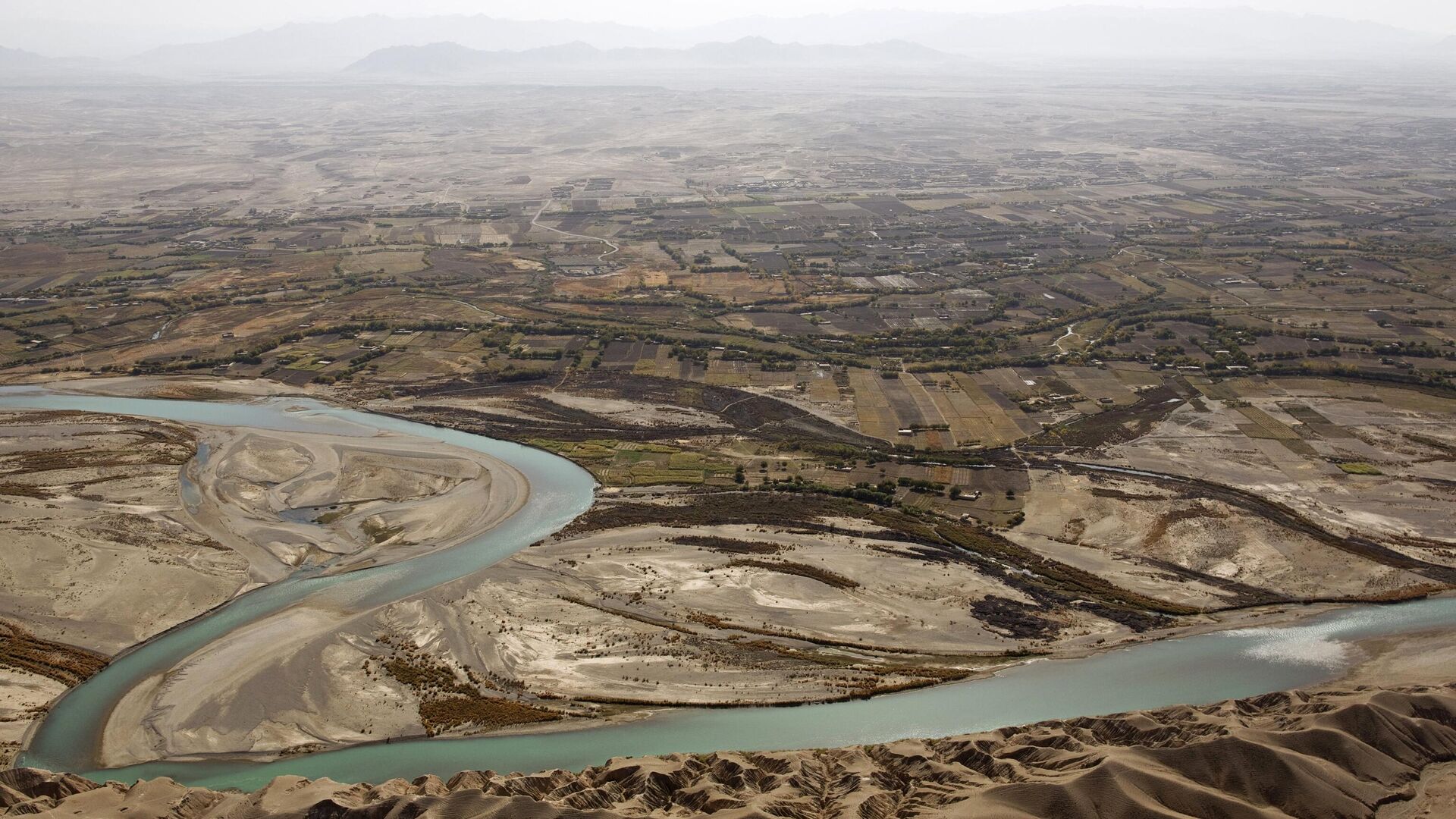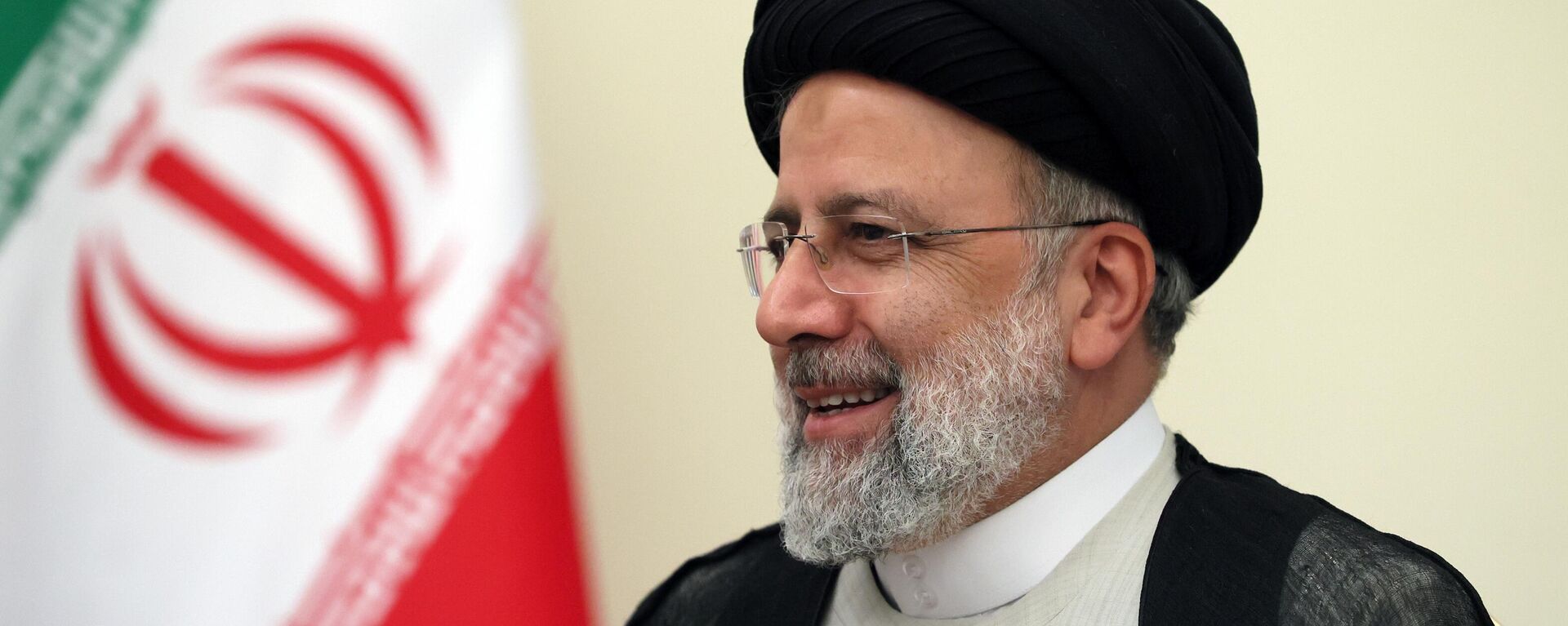https://sputniknews.in/20230516/iran-and-taliban-clash-over-helmand-river-water-1993548.html
Iran and Taliban Clash Over Helmand River Water
Iran and Taliban Clash Over Helmand River Water
Sputnik India
Afghanistan's longest river Helmand originates in the Hindu Kush Mountains near Kabul and merges into the Hamun Lake in the Hamoun wetlands in Iran's Sistan province.
2023-05-16T17:48+0530
2023-05-16T17:48+0530
2023-05-16T20:10+0530
world news
iran
kabul
taliban
water dispute
water scarcity
central asia
helmand river
https://cdn1.img.sputniknews.in/img/07e7/05/10/1996931_0:160:3072:1888_1920x0_80_0_0_4d77cf6aa8f722b650e95a36b1572916.jpg
Tensions between neighbors Iran and Afghanistan appear to have escalated over the sharing of the Helmand River's water.Iranian ambassador to Afghanistan, Hassan Kazemi Qomi, suggested that Taliban* authorities were not releasing the amount of water agreed upon between the two nations, Iranian media reported on Tuesday.Following disagreements that lasted more than a century, Afghanistan and Iran signed an accord - officially known as the 1973 Helmand Water Treaty - that regulates the flow of the river's water between the two Asian countries.According to the agreement, Iran is supposed to receive 820 million cubic meters of water from Helmand, which Tehran accuses Afghanistan of repeatedly violating.However, a spokesperson for the Taliban's Ministry of Energy, Matiullah Abid, dismissed Iran's claim and said that Afghanistan was allocating water to Tehran as per the treaty's provisions.Both sides said they hoped that the issue would be resolved through dialogue.The issue is significant, especially for Tehran, as the Hamoun Wetlands, where the Helmand River empties into Hamun Lake, are one of the few natural resources of fresh water in the region.* under UN sanctions for terrorism
https://sputniknews.in/20230505/irans-sco-membership-is-win-win-outcome-for-tehran--region-ex-envoys-1835517.html
iran
kabul
central asia
helmand river
Sputnik India
feedback.hindi@sputniknews.com
+74956456601
MIA „Rossiya Segodnya“
2023
Pawan Atri
https://cdn1.img.sputniknews.in/img/07e6/0c/13/139630_147:0:831:684_100x100_80_0_0_8fa2b25903e7787fe6a2698552c167df.png
Pawan Atri
https://cdn1.img.sputniknews.in/img/07e6/0c/13/139630_147:0:831:684_100x100_80_0_0_8fa2b25903e7787fe6a2698552c167df.png
News
en_IN
Sputnik India
feedback.hindi@sputniknews.com
+74956456601
MIA „Rossiya Segodnya“
Sputnik India
feedback.hindi@sputniknews.com
+74956456601
MIA „Rossiya Segodnya“
Pawan Atri
https://cdn1.img.sputniknews.in/img/07e6/0c/13/139630_147:0:831:684_100x100_80_0_0_8fa2b25903e7787fe6a2698552c167df.png
afghanistan iran helmand river water, afghanistan iran helmand river water treaty, afghanistan iran helmand water treaty, iran accuses afghanistan of violating helmand water treaty, iran accuses afghanistan of violating helmand water accord, iranian ambassador to afghanistan helmand river water treaty, iranian ambassador to afghanistan helmand water treaty, iranian ambassador to afghanistan helmand river water accord, iranian ambassador to afghanistan helmand water accord, afghanistan iran fight over helmand river water,
afghanistan iran helmand river water, afghanistan iran helmand river water treaty, afghanistan iran helmand water treaty, iran accuses afghanistan of violating helmand water treaty, iran accuses afghanistan of violating helmand water accord, iranian ambassador to afghanistan helmand river water treaty, iranian ambassador to afghanistan helmand water treaty, iranian ambassador to afghanistan helmand river water accord, iranian ambassador to afghanistan helmand water accord, afghanistan iran fight over helmand river water,
Iran and Taliban Clash Over Helmand River Water
17:48 16.05.2023 (Updated: 20:10 16.05.2023) Afghanistan's longest river - the Helmand - originates in the Hindu Kush Mountains near Kabul and merges into the Hamun Lake in the Hamoun wetlands in Iran's Sistan province.
Tensions between neighbors Iran and Afghanistan appear to have escalated over the sharing of the Helmand River's water.
Iranian ambassador to Afghanistan, Hassan Kazemi Qomi, suggested that Taliban* authorities were not releasing the amount of water agreed upon between the two nations, Iranian media reported on Tuesday.
"The amount of water which comes from Afghanistan to our soil is not more than 27 million cubic meters… there is a big difference between the numbers stated in the water treaty and what happens," Qomi was quoted as saying by Mehr news agency.
Following disagreements that lasted more than a century, Afghanistan and Iran signed an accord - officially known as the 1973 Helmand Water Treaty - that regulates the flow of the river's water between the two Asian countries.
According to the agreement, Iran is supposed to receive 820 million cubic meters of water from Helmand, which Tehran accuses Afghanistan of repeatedly violating.
"The issue of the treaty is a legal issue, to which the Afghan government is committed and declared its adherence. It must also implement the treaty," Qomi said in his appeal to Taliban authorities. "The Islamic Republic's government departments, specifically the Foreign Ministry, are following up on the people's rights. I hope that this year the issue will be resolved."
However, a spokesperson for the Taliban's Ministry of Energy, Matiullah Abid, dismissed Iran's claim and said that Afghanistan was allocating water to Tehran as per the treaty's provisions.
"We have allocated water to Iran based on the water treaty of Helmand of 1351 (solar year) and we are
committed to the treaty in the future as well," Abid noted.
Both sides said they hoped that the issue would be resolved through dialogue.
The issue is significant, especially for Tehran, as the Hamoun Wetlands, where the Helmand River empties into Hamun Lake, are one of the few natural resources of fresh water in the region.
* under UN sanctions for terrorism



